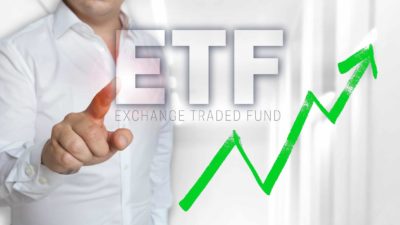Inflation has been a central concern of ASX investors for a few months now. But ever since learning that inflation is now running at a two-decade high here in Australia, that concern has only grown more acute. Inflation and the higher interest rates that usually come with it can have wide-ranging consequences for ASX shares.
That's why it is important to understand how inflation might affect a share portfolio, and what you can do to mitigate its corrosive effects. So let's check out two ASX exchange-traded funds (ETFs) that could help in this endeavour.
2 ASX ETFs that could help protect against inflation
BetaShares Global Banks ETF (ASX: BNKS)
This ETF from BetaShares enables investors to invest in a wide range of banks from around the world in one fund. You'll find US banks like JPMorgan and Wells Fargo here, as well as Royal Bank of Canada, HSBC Holdings, and Citigroup.
Bank shares are often identified as clear winners during times of inflation, given that they can easily preserve their margins if interest rates rise. Our own chief investment officer Scott Phillips discussed this very phenomenon this week. BNKS also pays out a healthy dividend distribution, further adding to its inflation-resistant properties.
BetaShares Global Energy Companies ETF (ASX: FUEL)
Any Australian who drives a fuel-powered vehicle would be acutely aware of the inflation-resistant nature of oil and other forms of energy.
Since energy consumption is usually a 'need' rather than 'want', there is always demand for energy in normal economic circumstances, even if prices are rising. Thus the companies that extract, refine, and sell energy products like petrol, diesel, and gas have an inherent advantage in periods of high inflation. And this FUEL ETF covers these kinds of companies.
It currently invests in energy giants like BP, Shell, Chevron, and Exxon Mobil. This ETF has already risen by almost 27% over the past six months, which is significant since this is the period that inflation concerns have significantly increased. FUEL also pays out a healthy dividend distribution.









